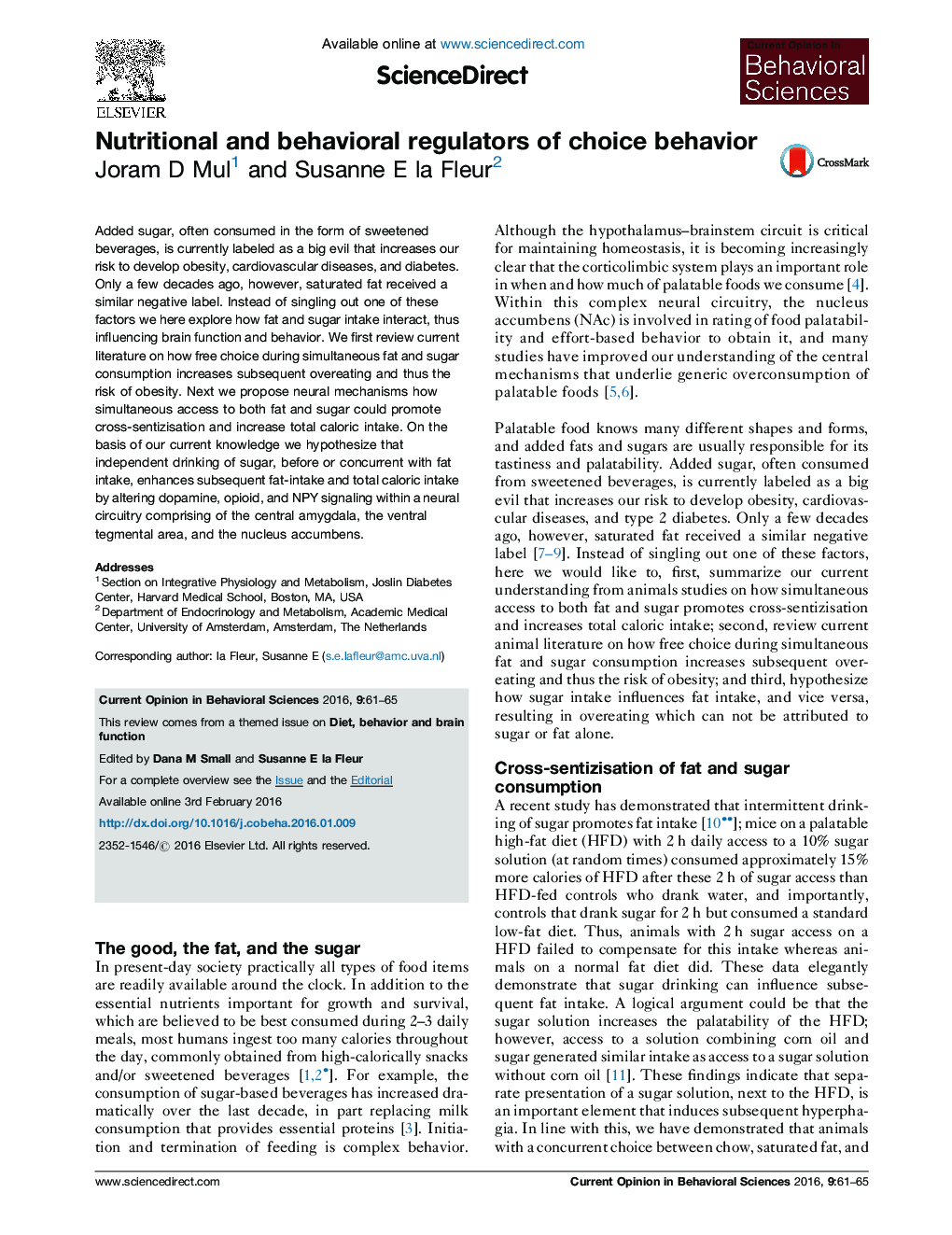| Article ID | Journal | Published Year | Pages | File Type |
|---|---|---|---|---|
| 6260590 | Current Opinion in Behavioral Sciences | 2016 | 5 Pages |
â¢Sugar drinking affects fat consumption.â¢Sugar consumption modulates opioid-signaling and dopamine signaling.â¢It induces adaptations within brain reward circuitry, including the amygdala, ventral tegmental area, and nucleus accumbens.â¢Sugar enhances NPY signaling in arcuate nucleus, which projects to the reward circuitry.â¢Enhancing opioid or NPY signaling within this reward circuitry enhances fat intake.
Added sugar, often consumed in the form of sweetened beverages, is currently labeled as a big evil that increases our risk to develop obesity, cardiovascular diseases, and diabetes. Only a few decades ago, however, saturated fat received a similar negative label. Instead of singling out one of these factors we here explore how fat and sugar intake interact, thus influencing brain function and behavior. We first review current literature on how free choice during simultaneous fat and sugar consumption increases subsequent overeating and thus the risk of obesity. Next we propose neural mechanisms how simultaneous access to both fat and sugar could promote cross-sentizisation and increase total caloric intake. On the basis of our current knowledge we hypothesize that independent drinking of sugar, before or concurrent with fat intake, enhances subsequent fat-intake and total caloric intake by altering dopamine, opioid, and NPY signaling within a neural circuitry comprising of the central amygdala, the ventral tegmental area, and the nucleus accumbens.
